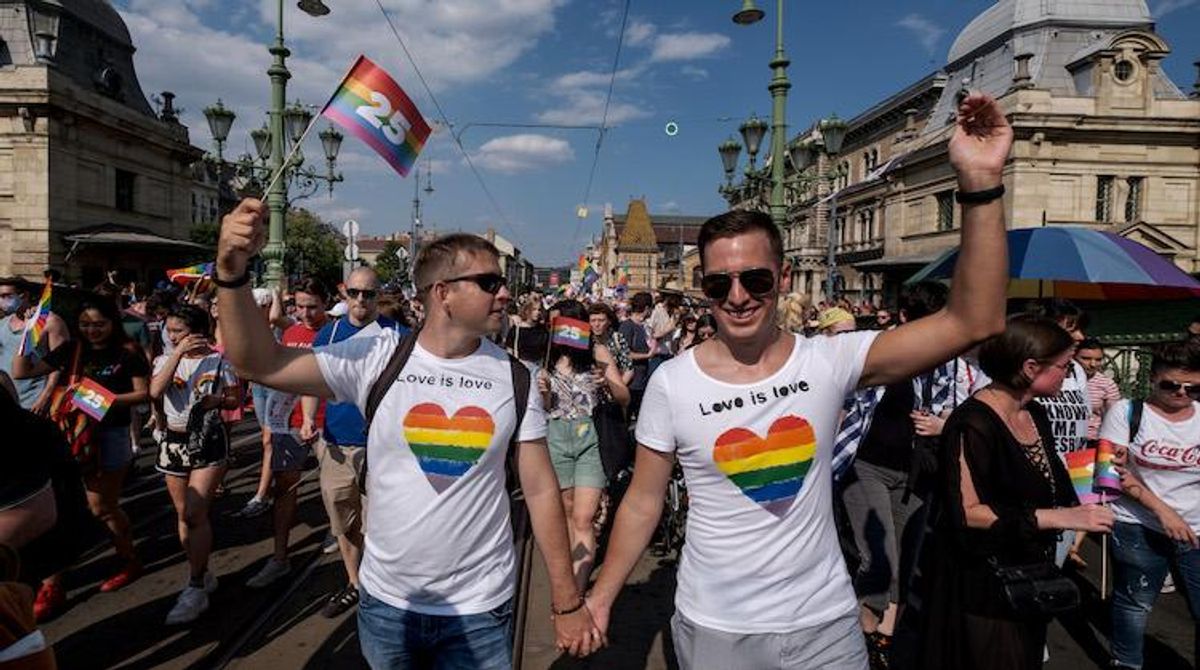In protest of the Hungarian government's continued crackdown on LGBTQ+ rights, thousands came out to support Budapest Pride on Saturday.
The event comes after a recent law that bans positive representation of LGBTQ+ lives in media and art including film, advertisements, and books. Critics have condemned the law as oppressive. They say it is just the latest attack on the LGBTQ+ community following laws passed last year that prevent same-sex couples from adopting and trans people from changing their gender on their legal documents.
Organizers told The New York Times that the march appeared to be the largest in its 26-year history.
Prime Minister Victor Orban and his ruling Fidesz Party have announced a referendum on the new law set for early 2022.
Research has found that 56 percent of Hungarians accept homosexuality and 46 percent support same-sex marriage, the New York Times reported.
The paper reported that analysts have said the most recent law looks to distract Hungarian citizens from the country's failing health system and economic situation after the COVID-19 pandemic.
The European Union has already begun legal actions in response to Hungary's recent law.
In a joint statement, the U.S. Embassy in Budapest, along with embassies from several other countries, sent a message of support to participants and organizers of the Pride.
"Concerned by recent developments that threaten the principle of non-discrimination on grounds of sexual orientation or gender identity, we encourage steps in every country to ensure the equality and dignity of all human beings irrespective of their sexual orientation or gender identity, and stress the need for elected leaders and governments to show respect for and protect the rights of LGBTQI+ persons," the statement said.
The event also stood as a reminder of the situation for LGBTQ+ people in the region.
"Pride marches in eastern Europe especially are less about celebration and more about protest, with more to protest against every year," Luca Dudits, co-leader of the LGBTQ rights group Hatter Society, told Agence France Presse.
"It is now more important than ever to take to the streets together in this fight for the rights and freedom of LGBTQ people," Dudits said.



















































































Fans thirsting over Chris Colfer's sexy new muscles for Coachella